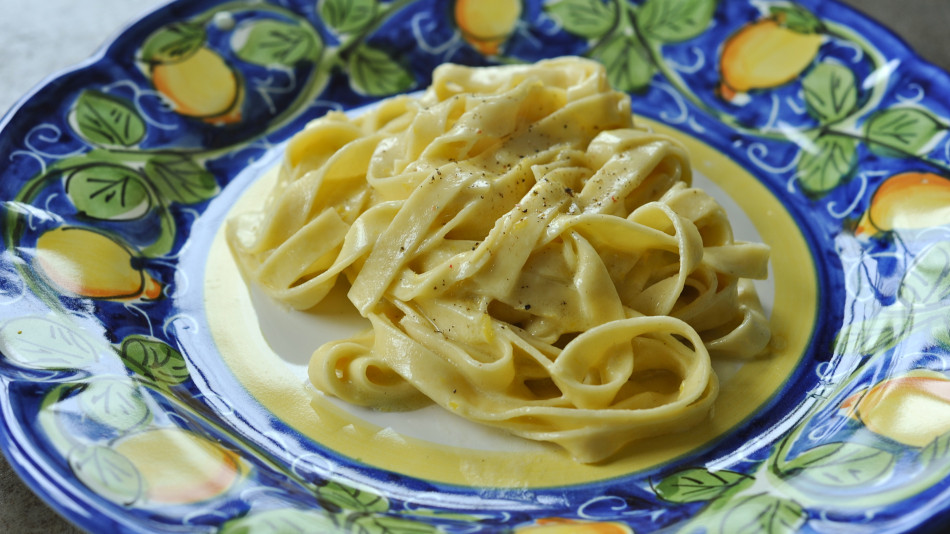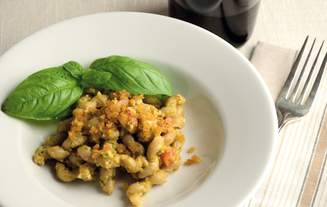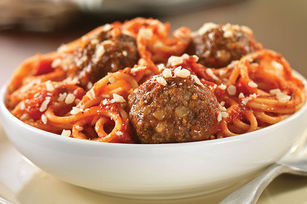|
There's been a lot of buzz lately about a new study by the Italian research journal, Nutrition & Diabetes, that making pasta a regular part of your diet can help keep you slim and healthy. Italians do have pasta pretty much every day as a part of at least one meal, and in general, Italians do carry less weight around than their Italian-American cousins. The Nutritional & Diabetes journal is an open source publication with a large editorial board with around 30 members--only one of which I noticed was Italian. However, the specific study with the overwhelming title of "Association of pasta consumption with body mass index and waist-to-hip ratio: results from Moli-sani and INHES studies", was in fact compiled by a team of 10 Italian researchers. The study was limited on one hand--two-thirds of the study was based on the diet of the small Molise region in southern Italy (just above Puglia) with only one third covering the rest of Italy--and broad-based on the other--the sampling covered more than 23,000 Italians. We Americans have always considered pasta as a delicious--albeit it--fattening food. The way Americans typically consume pasta--overcooked, and over-sauced, while filling over-sized dinner plates--perhaps that impression is correct. But for the sampling of Italians in the Moli-sani and INHES studies, the opposite seems true: Their conclusion was that "as a traditional component of a Mediterranean diet, pasta consumption was negatively associated with BMI (body mass index), waist circumference and waist-to-hip ratio and with a lower prevalence of overweight and obesity". In addition to this, another study published in Today’s Dietician (Busting the Top 10 Carb Myths) claimed that pasta can be made into a more healthy carbohydrate source only if it’s cooked al dente, as Italians prepare it. It goes like this: Eating your pasta al dente is important because the digestive enzymes in the stomach take longer to break down the al dente pasta's starch into sugars, so they are released more slowly into the bloodstream. On the other hand, when you overcook pasta, the softer pasta has a higher level on the Glycemic Index (GI). A given starch's GI indicates how fast glucose (sugar made from carbs) is absorbed into the bloodstream. Carbs with a high GI can be bad for you because because blood sugar taxes the pancreas, and can lead to diabetes and obesity. Al dente pasta is slowly digested, releasing less sugar into the bloodstream. "Ok", you say... so you'll just eat your pasta like Italians do and everything will be fine. You'll have a license to eat pasta to your heart's content. Not so fast, Marco Polo! You see, you have to look closer at how Italians eat pasta...
Some tips for healthier pasta
I'm not saying that we don't all over-indulge from time to time... I mean, hey, Lisa and I (and Lucas is learning, too) cook far better than most restaurants, so it's hard to resist having "seconds" in our house. Remember, the whole point of my blog is taking a Grand Voyage even if you aren't in Italy... Think Italian, cook like an Italian with simple ingredients, and when you dine, eat and drink like an Italian. You'll more than likely be healthier if you do... --Jerry Finzi You can also follow Grand Voyage Italy on: Google+ StumbleUpon Tumblr Copyright Jerry Finzi/Grand Voyage Italy - 2016
0 Comments
Your comment will be posted after it is approved.
Leave a Reply. |
Categories
All
Archive
June 2024
|






 RSS Feed
RSS Feed
